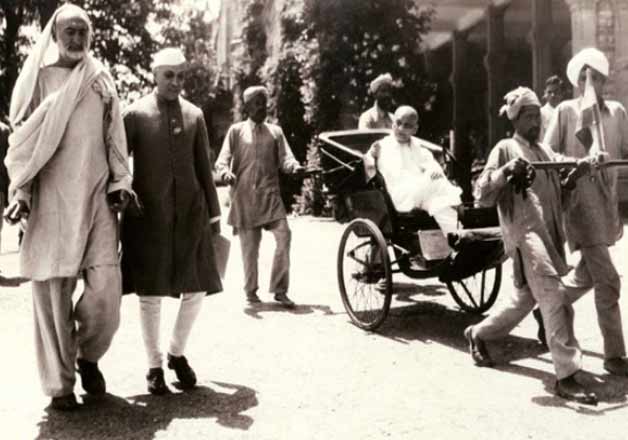
New Delhi: Sardar Patel is known as the ‘Iron Man' of Indian politics. What is it that got him the epithet of ‘Iron Man'?
Sardar Patel was a man of principles. A fierce nationalist, he never believed in compromising with his core philosophy of ‘nation first'. Basically it was his success in integrating around 565 princely states after independence that got him the sobriquet of ‘Iron Man'.
Patel did not hesitate in using the policy of ‘Saam-Daam-Dand-Bhed' (friendship, give-and-take, punishment, and divide-and-rule) for achieving his objective. Such was his resolve and craft that princely states were left with no other option but to merge with India.
Even Mahatma Gandhi believed that it was only Patel who could take up the challenge of unifying the hundreds of princely states. Reposing confidence in Sardar Patel, Mahatma Gandhi told him, "the problem of the States is so difficult that you alone can solve it".
Before India achieved independence, India had around 565 princely states and the Congress had a big challenge of persuading them for peaceful merger with India. Congress party entrusted Sardar Patel with this responsibility and Patel took it as a challenge of life and successfully executed it.
He used all the tricks in the book. He was polite to those who were reasonable and willing to play ball. He was tough with those who were reluctant and had their own designs. He did not hesitate in sending army wherever it was necessary.

Patel tried to address the financial concerns of princes by introducing the ‘privy purse' under which they were paid a fixed amount for their livelihood. ‘Stick and carrot' policy of Patel paid off handsomely and all but three of princely states willingly merged with India. The three states were – Junagadh, Hyderabad and Jammu and Kashmir.
Junagadh was a very interesting case in the sense that while more than 80 percent of the polpulation consisted of Hindus, the Nawab was a Muslim and under pressure from Sir Shah Nawaz Bhutto he decided to merge Junagadh with Pakistan completely disregarding the will of the people. This was completely unacceptable to Sardar Patel.

















